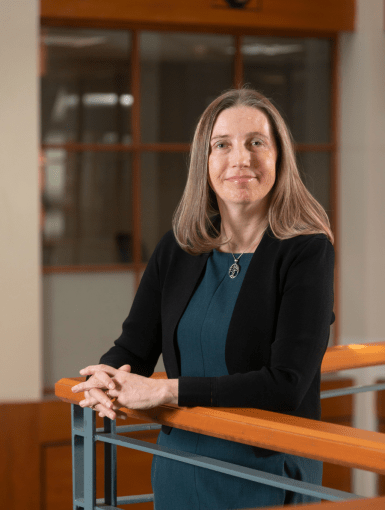
In a world where the convenience of running water and refrigeration is often underappreciated, it is sobering to confront the reality that, in Latin America alone, 201 million people are living in poverty, many without such basic necessities, according to the Social Panorama 2022 report by the United Nations Economic Commission for Latin America and the Caribbean. This demands urgent attention and action.
Given the widespread poverty that has permeated Latin America, School of Public Policy Professor Susan W. Parker felt a calling early on to make a difference. Her journey began during her college years when she first took an economics course and recognized that economics had the potential to positively impact people's lives. Since then, she has dedicated her career to improving the lives of those facing economic hardship. Recently, in recognition of her work, Parker was honored with the award of Honorary Professor of Economics by the Catholic University of Peru.
Expressing gratitude for the recognition, Parker shared, "It was a most special recognition and ceremony." She continued, "Professionally, it is extremely meaningful as I interpret this honor as a recognition that my work has had an important influence in the area of development economics in Latin America. That is always the goal of my research." Next year, Parker will spend part of her sabbatical at the Catholic University of Peru and looks forward to working and interacting with their professors and students.
Parker emphasized the importance of understanding the economics of poverty as a means to improve global well-being. Her research has centered largely on issues such as education and health in developing nations, with a particular emphasis on the evaluation of programs and public policies. Her work has significantly impacted the landscape of anti-poverty initiatives, particularly through the evaluation of conditional cash transfer programs. These programs were pioneered in Mexico and Brazil in the 1990s and have since expanded globally as essential tools in poverty alleviation strategies.
"I was one of the first individuals working on the education impacts of these programs,” explained Parker. “My research along with my co-authors showed these programs were successful not only at reducing current poverty but at getting more children to remain in school and thereby improve their skills and opportunities later on in life." Parker continued, "This led to their scaling up in Mexico and adoption in many other countries."
Parker's research has had a direct influence on policy decisions. She and her co-authors found that poor households tended to overstate their living conditions due to shame and stigma. Despite lacking basic amenities like running water, they would falsely claim to have them when surveyed. This led to their exclusion from assistance programs because they "over-reported" themselves out of eligibility. These findings prompted the Mexican government to refine their approach, ensuring that vulnerable households were not excluded from desperately needed assistance.
Looking ahead, Parker plans to utilize her recognition from the Honorary Professor award for the greater good. "I hope it will help me continue to carry out and share impactful research which contributes to the formation of public policies across Latin America to reduce poverty."




